SEO is an intoxicating topic for us for digital marketers. The rewards of mastering organic search are immense. But trying to keep up with the relentless beast called Google, well, that’s bound to make your head spin.
Sobering reminders of how trying it can be to stay current on how search works are often presented in the form of long and radically detailed reports about ranking factors.
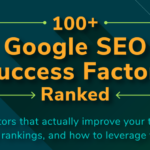 100 Google SEO Success Factors Ranked, a report recently published by Zyppy (a project by former Moz rockstar Cyrus Shepard), introduces an subtle spin. Rather than focus strictly on what’s believed or proven to be Google ranking factors, this 53-page beast walks you through “Google success factors,” which may or may not directly affect your rankings.
100 Google SEO Success Factors Ranked, a report recently published by Zyppy (a project by former Moz rockstar Cyrus Shepard), introduces an subtle spin. Rather than focus strictly on what’s believed or proven to be Google ranking factors, this 53-page beast walks you through “Google success factors,” which may or may not directly affect your rankings.
Confused? Don’t be.
Now, I’m not saying don’t invest the time in reading the report. It’s crammed with cool ideas and a boatload of links that form a syllabus to help you graduate with honors from Google U. But don’t go there yet. Because here and now I’m going give it to you in a short glass.
Here we go, Google Success Factors…. Shaken a bit because I have to add my commentary, strained because less is (sometimes) more, and served straight up so you can knock it down quickly.
The most important Google success factors
The Zyppy SEO success factors report offers 25 factors deemed critical (top 10) or important (factors 11 – 25). Obviously, you’ll increase your chances of getting ranked high in Google search results if you understand the factors and apply them where you can. Here they are.
1. Content that targets users search queries
Okay, that’s pretty obvious, but I suppose your foray into search engine optimization should begin by understanding that responding to specific queries is the role of search. The process of targeting the queries calls for conducting keyword research to determine:
- Words and phrases people use when searching
- An approximate monthly volume of the searches
- The level of competition for the phrase
2. Crawlability
Crawlability might as well mean “searchability.”
Search engines “crawl” your pages looking to understand what they contain. You’ll master this by learning how to show the Google spiders what’s what. We’re talking about basic on-page SEO. It’s easy. Blow it here and you’re DOA. Conduct periodic SEO audits to gauge crawlability across your website.
3. Links
I’m a partial naysayer here for two reasons:
- I’ve had great success ranking high on Google for pages soon after publishing, that is, before they’ve earned a single link. And often, the pages remain atop the rankings even if they never earn many links.
- Way too many people waste way too much time chasing links as if they’re precious. Sadder still, they often chase links with a complete disregard for relevance. (For instance, some fool just begged to get a link on this blog to an article about a casino. Why?)
That said, though most SEO experts would agree the power of links is in decline, few will deny links from external sites do provide signals to Google regarding the value of the page. Internal links help Google understand what’s where and if and how the content is related.
My advice is (1) publish great content worthy of earning links and (2) take advantage of the opportunity to get links by building relationships with relevant website owners and offering guest posts.
4. User intent (and behavior)
Suffice to say, your goal goes beyond presenting keywords; focus on providing your visitor the most satisfying answers and best possible experience.
Google tallies how the visitor behaves on your page and factors it into search results. Do they bounce? Do they spend time there? Do they go to additional pages?
5. Uniqueness
Google attempts to filter out duplicate content, so while you can publish content originating elsewhere, it’s not likely to mean much for search. Your goal should be to make your content uniquely valuable.
As, you know this post is based on content by the SEO experts at Zyppy. I’m aiming to put a unique spin on it to add value.
6. Authority
The quality of a page may be gauged by its “EAT” factor: expertise, authoritativeness, and trustworthiness. In fact, the EAT of your website at large may come into play. Your job’s simple: produce trustworthy content and build a positive reputation online.
The best way to determine the authority of a web page is to download and use the free Moz bar. The result above shows a site has a domain authority (DA) of 88.
7. Freshness
Fresh content isn’t always better or bound to outrank older content, but understand content related to events (e.g. Oscars, Olympics, elections, weather) will often make recency—or age—meaningful. Consider updating content where appropriate.
Don’t fixate on this factor. You’ll see, as evidenced by search results, it’s often not a factor at all. However, do understand your website, blog, and/or content hubs are bound to become irrelevant if they’re rarely (or never) updated. Websites that serve as “digital brochures” won’t perform well in a competitive field.
8. Click-through rate (CTR)
I strongly endorse CTR as one of the most substantial success factors. Google presents its results to get clicked. When the page doesn’t produce clicks it gets demoted.
While you can’t make someone click any more than you can make Google present your page on the first SERP (search engine results page), you can exercise some control. Most importantly, write great headlines and title tags as well as concise and compelling meta descriptions.
On Google, you may or may not have control over the snippet that follows the title and URL. However, your best bet for making it happen is writing a meta description for your page. Think of it as a little ad about the page.
9. Site speed
Research has made it clear slow-loading pages reap the wrath of both search engines and users. So Google has made it clear site speed matters—with a special empaphasis on mobile.
10. Mobile
Your content needs to be mobile-friendly. In the age of Google’s Mobile First Index, a poor mobile experience is likely to negatively affect your performance on desktop search as well.
11. Design
Hmm… Does Google evaluate your layout and design? I think not. But users do. Remember, unsatisfied users leads to unsatisfactory search results. Be sure your pages are easy to navigate, organized in practical manner, clear, clean and legible. Remove elements that create unnecessary visual clutter.
12. Relevant keywords (and topics)
Simple stuff here. Search is about relevance. The words and topics you choose make your content relevant, or not.
An important point to understand here is the use of keywords is not nearly the exact science it used to be. Also, understand it’s not helpful to repeat the keywords unnaturally (keyword stuffing). What is important is to include phrases, synonyms and variations related to your topic.
And finally, mark-up (tag) your page correctly. Refer to SEO Simplified for Short Attention Spans for a quick lesson about on-page optimization.
13. Images and video
The inclusion of images and video can make your content more engaging, more likely to be shared, and in some cases, help you rank. Reduce the size of your images to accelerate load time. Tag them with relevant descriptions to help Google index them, and possibly, display them.
For certain searches, Google goes ga-ga for video.
14. Personalization
Personalized search began in 2009 on Google and is highly prevalent today. Search results are based on your search history, location, device, and more. Though it’s hard to prescribe actionable steps based on personalized search, Zyppy’s authors recommend engaging visitors through as many touchpoints as possible.
15. Link quality
The authority of pages that link to yours is understood to be a ranking factor. Keep this in mind if you’re conducting a deliberate link building effort. Steer clear of spammy sites.
16. Link relevance
You want the sites that link to your pages to be relevant to your business category and topic.
17. Social sharing
Google has denied social shares factor into search rankings. Maybe they’d be humming a different tune if Google+ succeeded.
By no means, should you allow this to suggest social shares don’t factor into your success. Social shares increase your reach, which in turn can maximize traffic and the other metrics you covet. Also, there’s a strong correlation between social shares and rankings.
It’s worth noting social shares have become far harder to come by for most businesses. Also, in recent years it’s been downplayed by Twitter and LinkedIn as both networks have done away with the APIs that report share counts on the page.
Nonetheless, you want to create content that inspires sharing, encourage viewers to do it, and make it easy for them to do so.
18. Page structure
Help Google understand your pages by organizing content with a clear hierarchy of titles, headings, and so forth. Present your ideas in an “inverted pyramid” style with the most important information first.
19. Content depth
Content that explores its topic in-depth wins. While you shouldn’t write lengthy pages and posts in the interest of word count, don’t scrimp. Length is not a ranking factor, but it’s clear longer content has proven to rank higher (particularly for educational blog posts).
Single-page or lightweight websites are far less likely to perform well in search. Even robust sites composed entirely of sales pages will struggle.
Conversely, you will fare better if you publish quality content regularly over a long period time. Don’t shy away from covering the same or similar topics repeatedly. In fact, consider building topic clusters.
Warning: Things are about to get technical. Proceed accordingly.
21. Structured data
Structured data provides search engines additional data about your content and increases the chance your page gets a special treatment from Google in the form of rich snippets, rich cards and a growing number of search result goodies they’ve been experimenting with. (I’ll leave it at that but invite you do visit Schema.org if you want to learn more.)
Rich snippets take many forms, but include more information than a standard SERP listing. They’re likely to include images and like the snippet here, they may include numbered lists.
22. Hreflang
What flang? This is technical stuff that matters to website owners that publish in different countries and languages.
23. Brand search
The more people search for your brand and website, the more it shows up in search. A factor? Yes. Action item? Hmm… Promote your brand. (You heard it here first 😉)
Brand searches can influence Google auto-suggest as you see here. I began searching for “Peet’s Coffee” and Google automatically began making suggestions.
24. AMP
Accelerated Mobile Pages (AMP) load faster, earn a little lightning bolt icon in the search results, and increase the chance of being included in a rich result, carousel or special feature.
Here’s a search result from a search I did on my phone. See that bolt in the upper right? It confirms the page is accelerated and may be one factor that made it show up for my “how to make lemon bars” query.
25. HTTPS
The “S” in this abbreviation is for secure. If your website hasn’t made the switch to HTTPS, it’s a good idea. Web hosts make it easy and usually free. You’ll avoid the dreaded “Not Secure” label in the URL bar and may gain a slight advantage in search results.
Google success do’s
The third section of the Google Success Factors report details 20 factors deemed “influential” and claim they can give you an edge. I’m going to cover some of them and and present them as “do” tactics.
- Make your URLs short and include keywords.
- Offer quality supplemental content such as navigation, related articles, comments, related products, etc.
- Tell Google what to NOT index where appropriate (members only areas, duplicate content, etc.) with robots.txt files or other methods of robots control.
- If your site is large, offer an XML or HTML sitemap.
- Include external links to high-quality sources.
- Ensure your site architecture is well organized and features practical cross-links.
- For local SEO, make sure to get high-quality citations and positive reviews.
- Use associated keywords and related phrases, a.k.a. semantic content.
- Consider readability and strive to make your content match the audience.
- Make it clear who authored the content.
- Keep your website registration data up-to-date and consistent.
Google success don’ts
This post is going to skip the report’s fourth section, which is about SEO myths, and move to its final section, “negative factors.” I’ll make them a simple list of “don’ts” and urge you to resist any and all blackhat techniques.
- Don’t touch any questionable, unnatural link practices.
- Don’t cloak (show content to users that differs from what’s shown to Google).
- Don’t accidentally block pages with robots.txt.
- Don’t keyword stuff.
- Don’t use the seedy tactic of hidden texts or links.
- Don’t falsify reviews.
- Don’t link to shady websites.
- Don’t overload your pages with ads, especially at the top.
- Don’t forget to find and fix crawl errors on occasion.
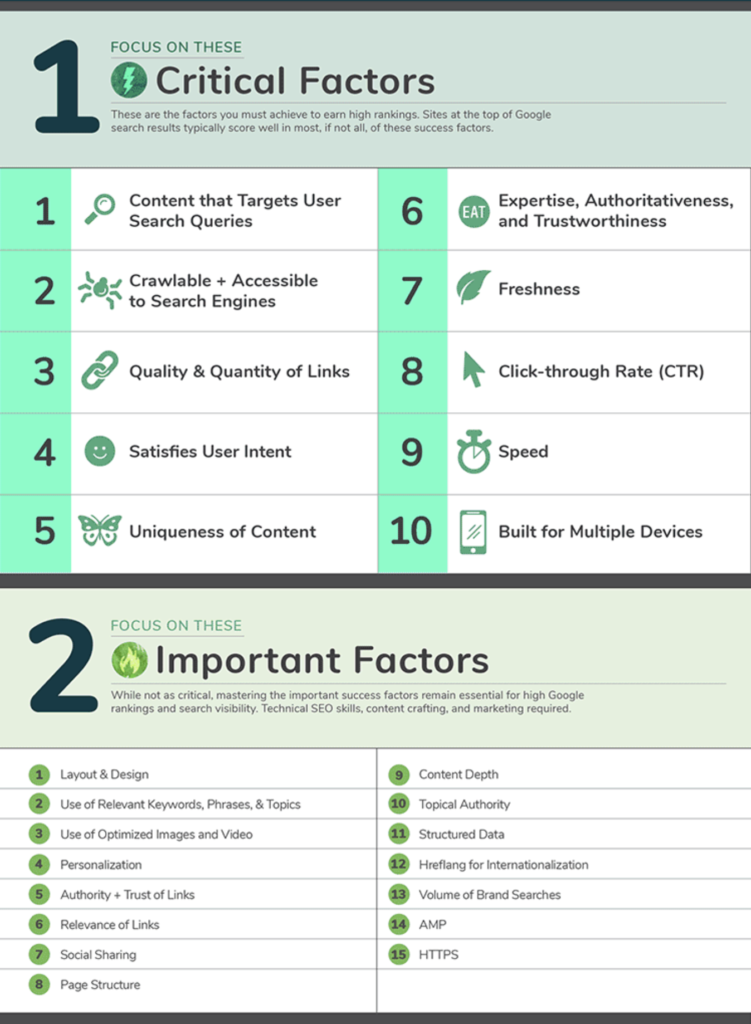
Above are the top two sections of an infographic by Zyppy. The entire “100+ Google SEO Success Factors Ranked” infographic can be seen here.
Want to learn even more?
You can also get one of the best lessons offered anywhere on optimizing your content for search by watching this brief video interview with my friend and SEO master Andy Crestodina of Orbit Media Studios.
#SEO secrets, served straight-up. You'll learn a ton about #Google success factors in this post. Click To Tweet





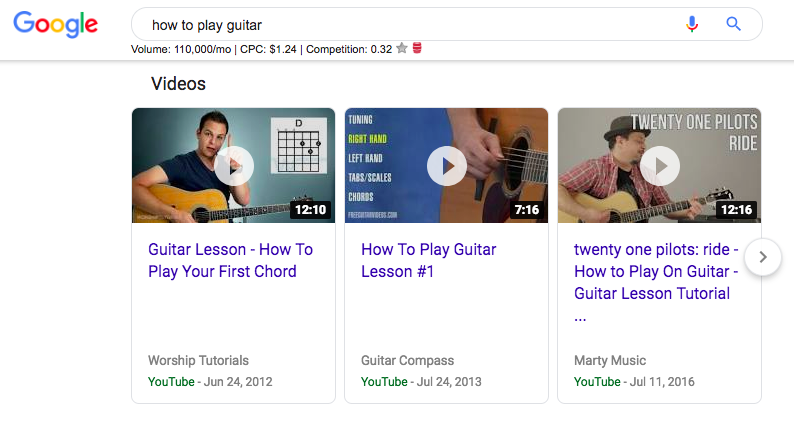
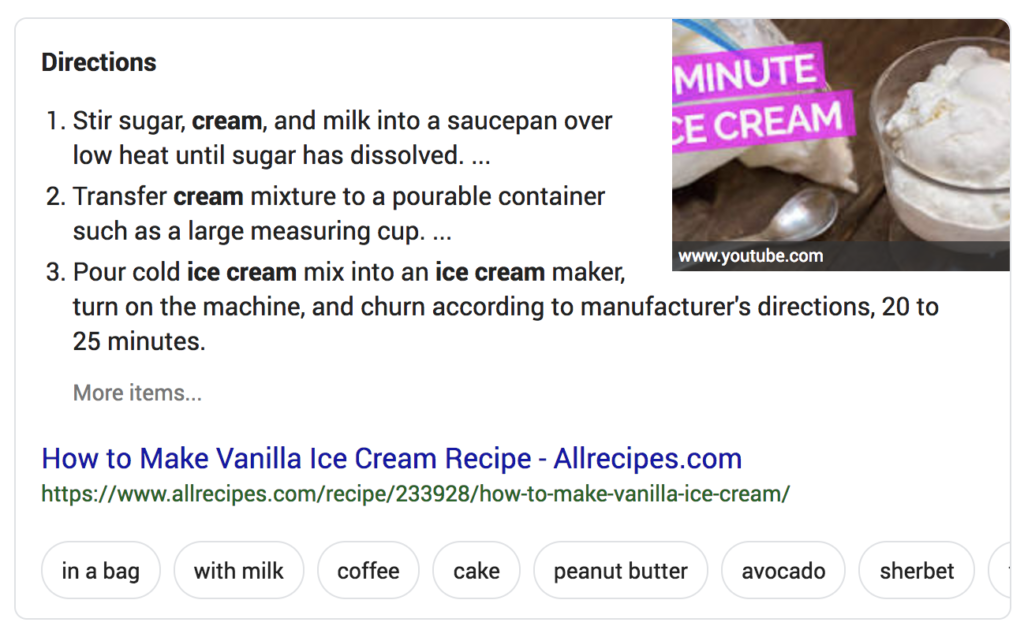
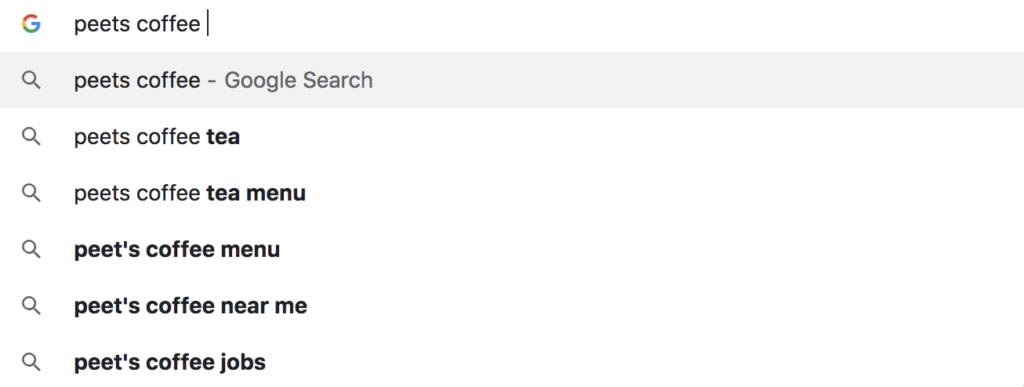
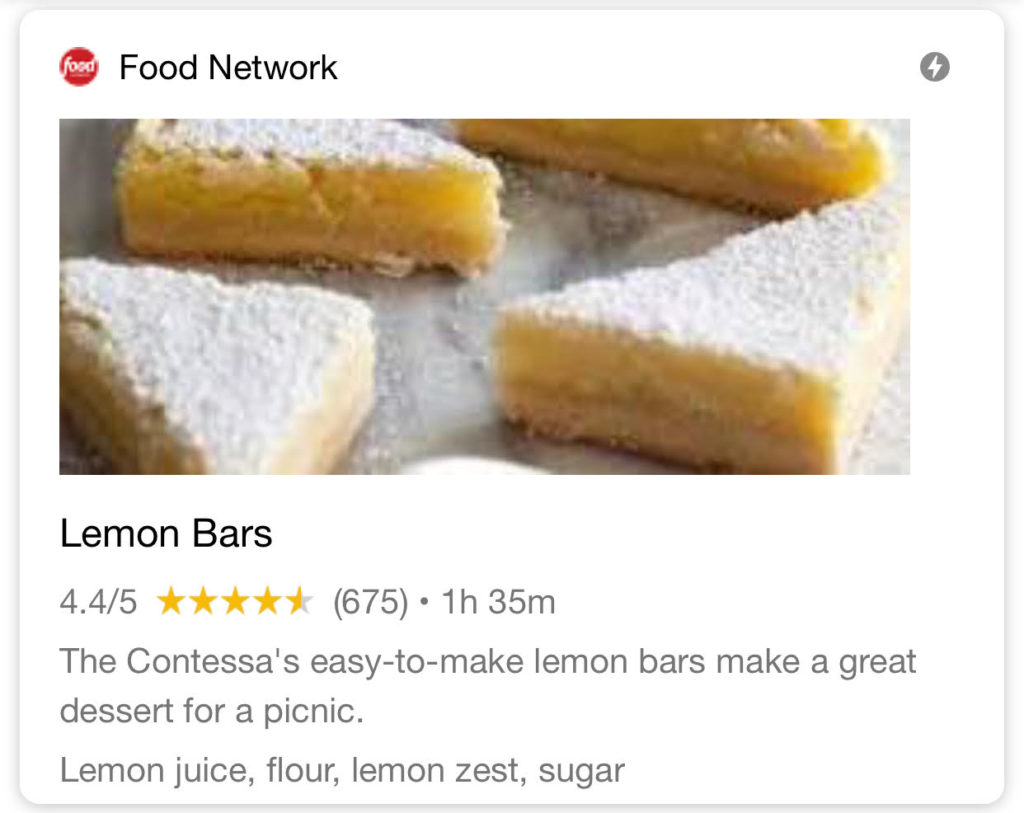


![The Most Common & Costly SEO Mistakes [Content Jam Episode 35] The Most Common & Costly SEO Mistakes [Content Jam Episode 35]](https://feldmancreative.com/wp-content/uploads/2018/09/Content-Jam-podcast-35.png)
